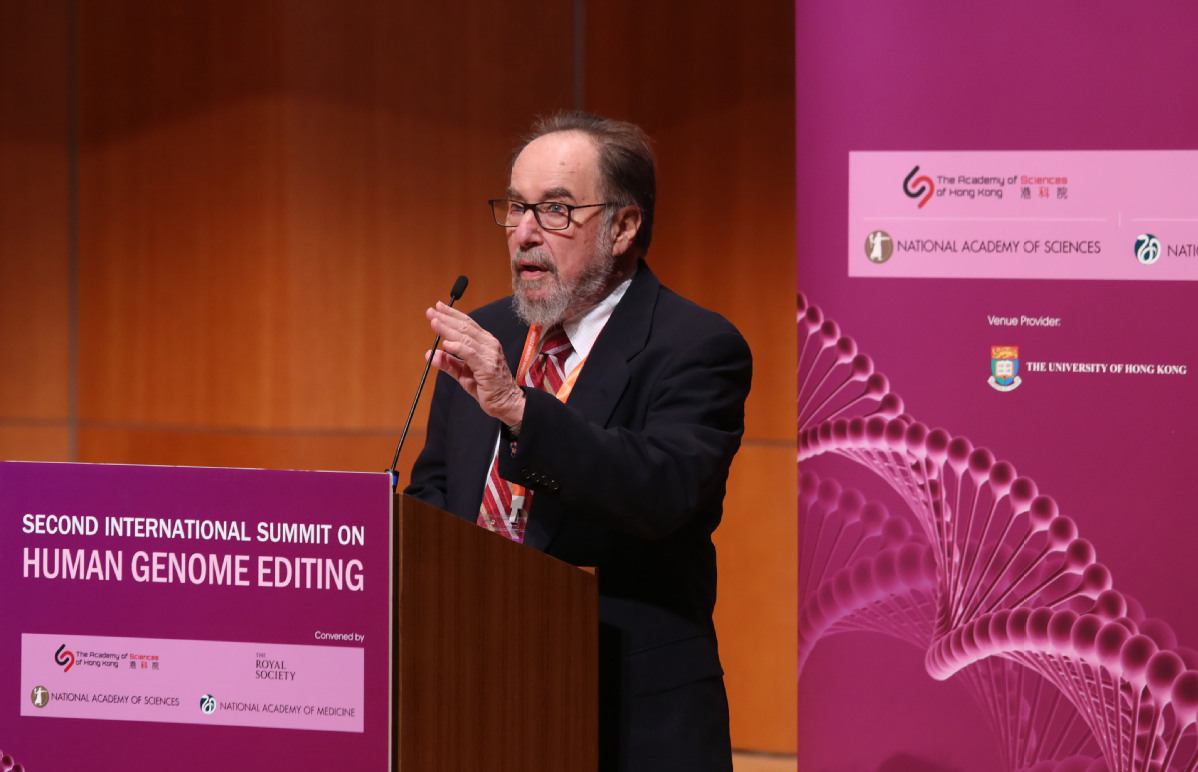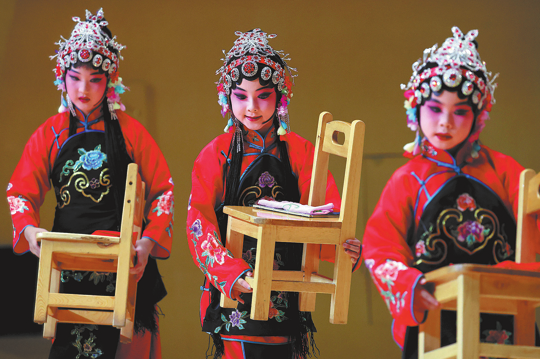Criticism pours in on gene editing claim


The audacious move by a Chinese scientist to create the world's first twin babies ostensibly immune to HIV by using gene editing technology continued to generate widespread condemnation in China and abroad on Tuesday, with investigations from various authorities having yet to reach a conclusion.
He Jiankui, a biological researcher in Shenzhen, Guangdong province, announced on Monday that twin girls, Lulu and Nana, were born healthy earlier this month via invitro fertilization with gene editing technology that immunized them from HIV infection.
He's announcement stirred heated debate among scholars, with many on Tuesday joining the fray to condemn him for ethics flaws, and questioning the very necessity of such a procedure.
In a signed open letter on Tuesday, 140 Chinese researchers in HIV/AIDS from China and abroad condemned the "unethical" research and called for authorities to take measures to ban the research from continuing.
"We are strongly opposed to conducting research involving genetic modification and editing of healthy fertilized human eggs and embryos unless the safety and effectiveness of the technologies have been proved," the letter said.
"We strongly appeal to authorities to formulate and improve as soon as possible rules in the application of genetic editing technology to human bodies and other biological bodies to ensure the integrity and security of the human species … and to ensure rational, stable and healthy development of science in China and the world."
Many effective medical interventions are available to prevent babies born to HIV-positive parents from themselves being infected, including highly efficient antiviral drugs. A couple, with an HIV-positive father and healthy mother, can give birth to healthy offspring with existing technologies, so it is not necessary to resort to gene editing, the letter said.
The letter followed a similar open letter released on Monday, signed by more than 120 scholars involved in biological and medical research.
Xu Nanping, vice-minister of Science and Technology, said on Tuesday the ministry is paying close attention to the case, and urged related parties to launch thorough investigations and disclose results to the public.
The Enforcement of Scientific Ethic Committee of the Academic Divisions of the Chinese Academy of Sciences said on Tuesday that it is also paying close attention to the issue and is firmly against any clinical application of gene editing of human embryos by anyone or any organization in circumstances relying on immature theories and technologies.
The committee said it is willing to cooperate with authorities in the investigation.
The China Union of Life Science Societies said on Tuesday that He's research has caused serious damage to the reputation of the scientific discipline in China.
"We are firmly opposed to it and suggest that a multi-departmental investigation team be established immediately to conduct a serious investigation into the organizations and people involved, and mete out punishments to those responsible," it said in a statement.
The National Health Commission ordered on Monday night its Guangdong branch to investigate the incident. Southern University of Science and Technology, where He works, denied any knowledge of his research and said a probe is underway.
Rice University in the United States said it will investigate the involvement of physics professor Michael Deem, who worked with He on the project in China, the Associated Press reported on Tuesday.
"Regardless of where it was conducted, this work as described in press reports violates scientific conduct guidelines and is inconsistent with ethical norms of the scientific community and Rice University," the school said in a statement. Such research on gene editing is banned in the US, the school added.
- Safeguarding life on the Roof of the World
- Education innovation expo bolsters intl exchange in GBA
- China's State Council appoints, removes officials
- Chinese, Vietnamese navies conclude joint patrol in Beibu Gulf
- Co-hosting Games enriches 'one country, two systems'
- China's top court highlights domestic violence cases to raise awareness




































